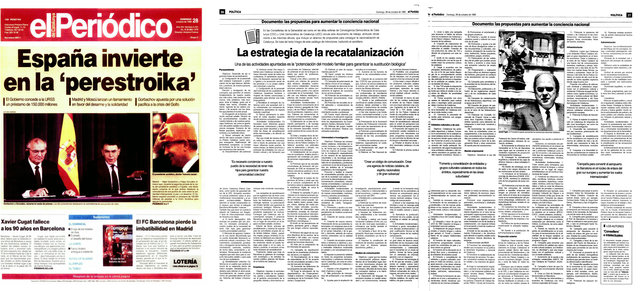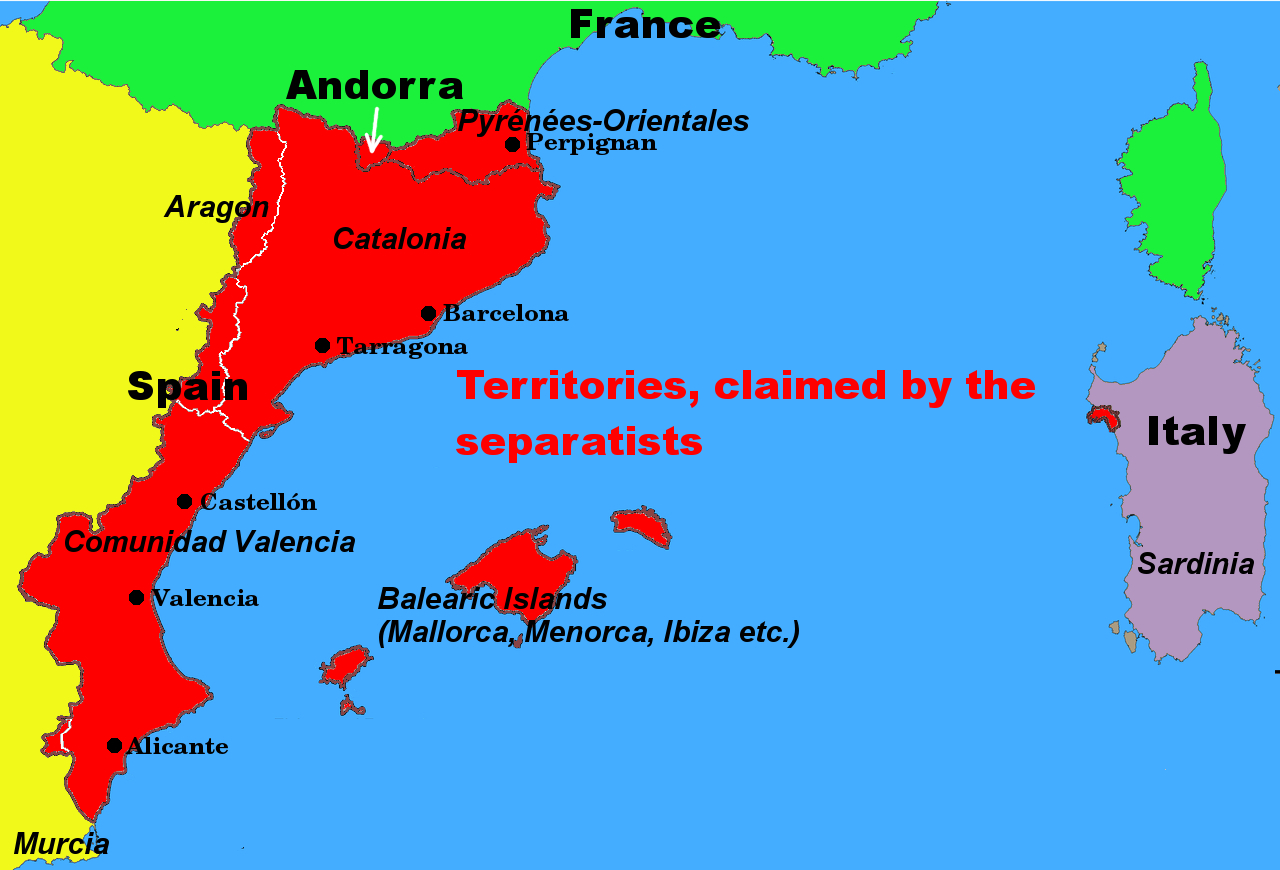All quiet?
Language imposition - a smouldering conflict
March 1, 2021
The Corona policy overshadows everything. Unfortunately, this does not mean that the language conflict has been defused. It continues to smoulder under the surface.
This can be seen in the demands of those who demand the freedom to choose the language of instruction and those who want to prevent this in favour of language imposition. The consequences for the pupils who have to suffer under this policy are frightening.
On 16 February, the public was alerted by a report of several teachers in the autonomous region of Valencia complaining that they were being pressured. They were told to demand in the relevant school committees that more Valenciano be taught than the minimum required by law. Of course, this pressure was not in writing, but orally and especially in schools where the overwhelming majority of pupils have Spanish as their mother tongue. The latter is the case in very many municipalities in the province of Alicante. Alicante is a province located in the south of the Valencian Autonomous Region.
These teachers therefore pointed out that, according to the law currently in force, the schools' linguistic project (Proyecto Lingüistico de Centro = PLC) must be adapted to the situation and that there is scope to reduce the percentage of subjects in Valenciano, taking into account pedagogical reasons. In practical terms, with a majority of Spanish-speaking pupils, to reduce the teaching to the 25% Valenciano required by law.
These projects should have been decided by 28 February this year and many teachers and families have stated that they would not have given permission for the PLC because their demands on language distribution were not taken into account. It is also a fact that many parents were not even consulted, so now the state ministry will decide without the support of the education communities.
The manoeuvres of the pressurising language advisors are of course in line with the Valencian Community government's strategy of gradually accelerating linguistic enforcement until Catalan immersion (Valenciano is a Catalan dialect) is achieved in all zones of the Valencian Community.
This is also indicated by the haste with which attempts were made to counter these protests. Right on 18 February, for example, a report appeared in the newspaper „Levante“ with the title: „Dozens of high schools defend more Valenciano before the arrival of multilingualism“.
What a grotesque situation! Is it justifiable to ask whether it is intentional that parents should argue about which language they prefer? Why not allow parents to decide on the language of instruction for their children? That avoids any dispute and yes, costs more money. But education should be worth that more to us than anything else.
What happens to children when you let the language fanatics do their thing could be read in the ABC newspaper earlier this month. A girl in Mallorca had given two answers in Spanish instead of Catalan or the Catalan dialect Mallorquin in a science subject and was therefore downgraded from a grade A to a grade B. Her offence was that she used the words „termómetro“ instead of „termómetre“ and „pluviómetro“ instead of „pluviómetre“. (The difference is in the last letter o/e). This happened in a science subject, mind you!
It's already hard when you have to learn subjects in a foreign language, a disadvantage compared to a native speaker. It is shockingly discriminatory when an answer in a non-linguistic subject is judged wrong when given in the „wrong“, supposedly equal, official language and even when the answer is unmistakably correct, as in this example.
| | | | Click here to subscribe or cancel your subscription |
Myths and deceptions of Catalan nationalism

Here you'll find the translation
The strategy of recatalanization
 1980 the Spanish journal "El Periodico" published a secret document about the strategy of the Catalan government. It shows in a frightening way the actual spiritual world of the separatist leaders.
1980 the Spanish journal "El Periodico" published a secret document about the strategy of the Catalan government. It shows in a frightening way the actual spiritual world of the separatist leaders.Now it is available in english translation.
Pancatalanism
the separatist's imperial claim
 The Catalan government exports the conflict into communities with Catalan population, supporting all efforts of the separatists including financial means to destroy Spain.
The Catalan government exports the conflict into communities with Catalan population, supporting all efforts of the separatists including financial means to destroy Spain. An important tool is the establishment of a language dictatorship that is not afraid to use the same means as Franco.
Separatist indoctrination

Click here to read the study
Language imposition and democracy

An essay in 6 parts on the potentially violent effect of language imposition containing contributions from South Africa, Catalonia, Ukraine and France.
go to part 1
Publications
 The title says: "Catalonia, a conflict is exported. Insights of a migrant"
The title says: "Catalonia, a conflict is exported. Insights of a migrant"Sorry, up to now, this book is only available in German. However, drop us a line, if you are interested to learn more Contact.
